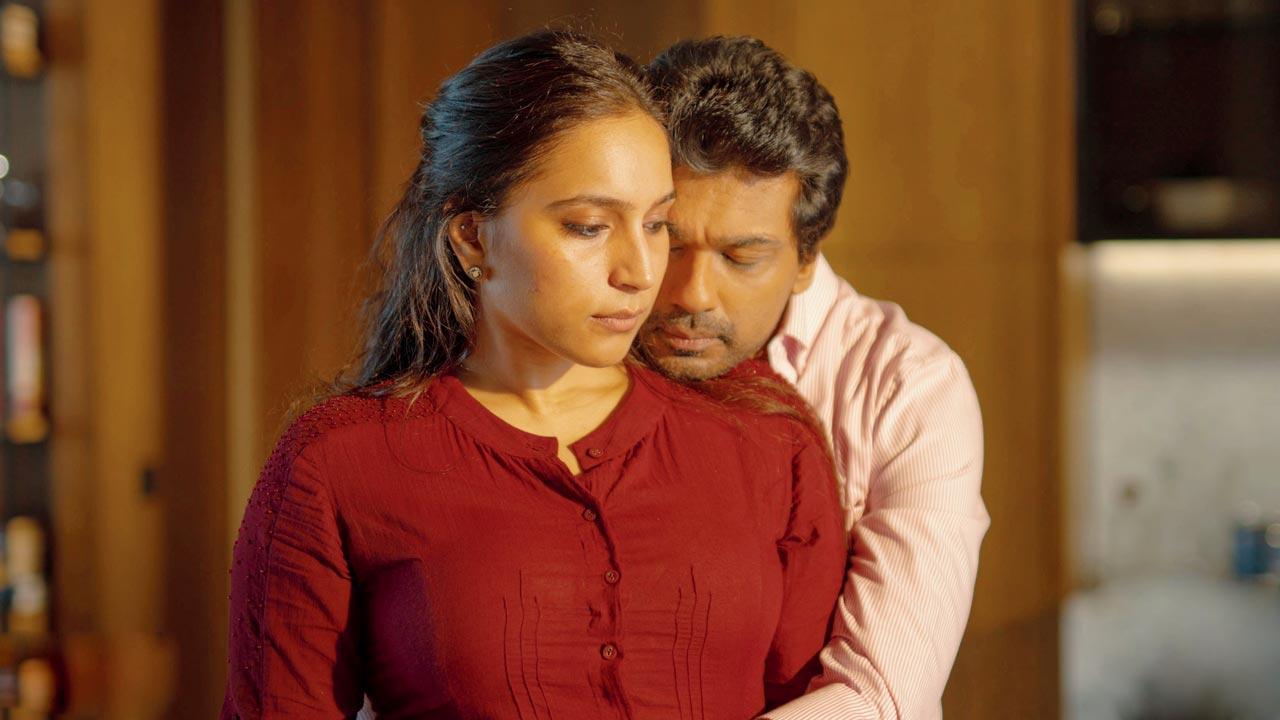The film solidly plays with diegetic/ambient sound, in a way that only The Great Indian Kitchen (2021) can match. Beyond the finishing touches, it’s really the way the film finishes up—ending scene, all the more vital in short format; the point of it all—that makes it worth the while. And lets it stand far apart from the rest

A still from Ankahi Kahaniya
Ankahi Kahaniya
On: Netflix
Dir: Ashwiny Iyer Tiwary, Abhishek Chaubey, Saket Chaudhary
Rating: 2/5
ADVERTISEMENT
If you’re wondering why certain short films’ anthologies appear on Netflix with episodes to click on separately (Ray), while others play out as a continuous film (Ajeeb Daastaans), I checked with someone within the OTT platform once. It’s got to do with internal teams that commissioned the said works.
Which is to say, those involved with green-lighting long-form series, get the short films’ anthology in the form of separately clickable episodes. Likewise, those entrusted with commissioning movies otherwise, play the anthology out on the platform as a continuous package. As if it was a feature length film—that, of course, it isn’t.
Watch Trailer:
Why the viewer must deal with the latter inconvenience for a bureaucratic issue is beyond me. That it’s predominantly raining short films’ anthologies, on Netflix in particular, could be a pandemic phenomenon.
Given that such collections allow for multiple crews, shooting within restricted locations and time-lines, under various, competent directors, putting together a single project, as it were. Quick and easy; done and dusted. That this form (of storytelling) can get dreary/tiring beyond a point—even if the content doesn’t—goes without saying.
Ankahi Kahaniya, co-produced by Ashi Dua, who’s previously helmed/curated Lust Stories and Ghost Stories (for Netflix) is similarly a series of three shorts, masquerading as a continuous feature, with interpretations of love as a loosely overarching theme.
The anthology starts off with a short by Ashwiny Iyer Tiwari, starring Abhishek Bannerjee, dealing with a curious cross between Spike Jonze’s Her (2013), and what could potentially be a Japanese pervy fetish/infatuation. Wherein the lonely lead character from a small town in Mumbai falls for the mannequin at the clothes’ store he works at!
The compilation ends with director Saket Chaudhary’s take on two married people (starring the lovely, understated Zoya Hussain, Kunal Kapoor), whose respective partners are cheating on them—but with each other.
Which, coincidentally, might remind you of the short, In the Waiting Room of Estranged Spouses, Episode 6, from Modern Love Season 2 (ML, S2; on Amazon Prime Video). Only this one’s dramatically more simplistic, and deeply clichéd on occasion.
At the centre of this compilation is a short love story, if you may, partly in Marathi, directed by Abhishek Chaubey—about a young guy (Delzad Hiwale), girl (Rinku Rajguru). Both oppressed in their own ways. They dream together inside a single screen cinema—an ’80s fantasy factory of urban dreams itself. The audience gradually absorbs the Sairaat-like grimness of it all.
The film solidly plays with diegetic/ambient sound, in a way that only The Great Indian Kitchen (2021) can match. Beyond the finishing touches, it’s really the way the film finishes up—ending scene, all the more vital in short format; the point of it all—that makes it worth the while. And lets it stand far apart from the rest.
Which is quite common lately, you’ll notice, with most such anthologies. They obviously are tonally inconsistent, since they involve multiple filmmakers/voices. As against a short story collection, by a single author—a norm in publishing. What do you instantly recall from ML, S2? Effectively, the first episode (and maybe the third). From Ajeeb Dastaans? Neeraj Ghaywan’s Geeli Pucchi. Ghost Stories? Dibakar Bannerjee’s top-rate zombie flick.
Ray? Chaubey’s Hungama Hai Kyon Barpa. Few months later, here? Chaubey’s short, based on the Kannada story Madhyantara by Jayant Kaikini. Hmmm... Maybe Chaubey should get a set of his own.
 Subscribe today by clicking the link and stay updated with the latest news!" Click here!
Subscribe today by clicking the link and stay updated with the latest news!" Click here!






